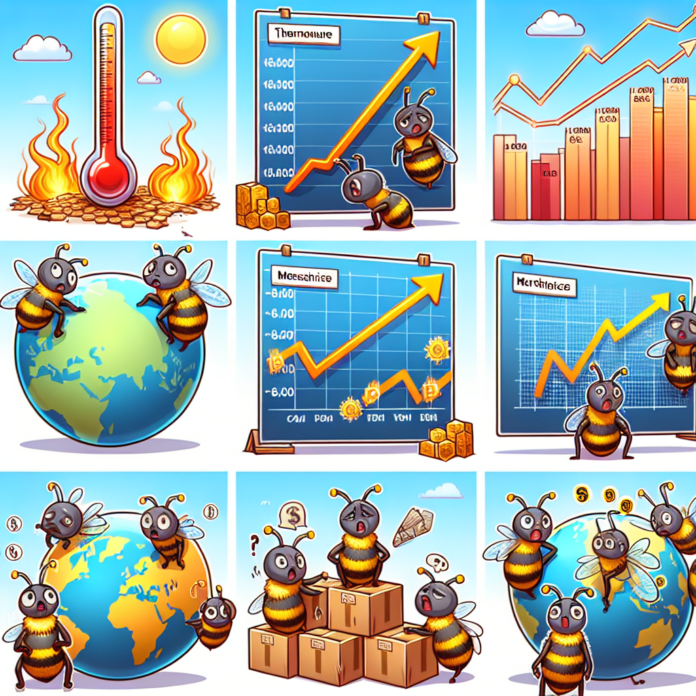Challenges Facing Bees Amid Climate Change and Trade Issues
Bees Face Multiple Threats: Climate Change, Trade Wars, and Cryptocurrency Culture
Bees, crucial pollinators for many of the world’s crops, are increasingly under threat from a combination of factors, including climate change, international trade tensions, and the rise of cryptocurrency culture.
The Impact of Climate Change
Climate change has significant implications for bee populations. Rising temperatures and shifting weather patterns disrupt the natural habitats of many bee species, leading to changes in flowering times and the availability of food sources. For instance, earlier springs can lead to a mismatch between the blooming of plants and the life cycles of bees. Moreover, extreme weather events such as droughts and heavy rainfall can damage habitats and reduce the availability of flowers, further stressing bee populations.
Trade Wars and Their Consequences
The ongoing trade war between major economies has introduced additional challenges for beekeepers and the agriculture sector. Tariffs on agricultural products can lead to increased costs for farmers, making it harder for them to invest in sustainable practices that benefit pollinators. Moreover, disruptions in the supply chain can impact the availability of essential bee management supplies, such as medications and equipment, which are critical for maintaining healthy hives.
The Influence of Cryptocurrency Culture
Interestingly, the rise of cryptocurrency culture, particularly meme coins like Dogecoin, has also drawn attention to the plight of bees. While this may seem unrelated, the public’s fascination with cryptocurrencies has led to innovative fundraising initiatives aimed at supporting bee conservation efforts. Some projects have introduced tokenized donations, allowing cryptocurrency users to contribute directly to bee preservation organizations. This intersection of technology and environmental advocacy highlights a growing awareness of the need to protect pollinators in the face of evolving challenges.
The Importance of Bees
Bees are not just vital for the production of honey; they play an essential role in pollinating a significant portion of the food we consume. Approximately one-third of the food produced globally relies on pollination, emphasizing the need to address the threats facing these insects. Without concerted efforts to mitigate climate change, support sustainable agricultural practices, and raise awareness about the importance of bees, we risk jeopardizing food security and biodiversity.
In conclusion, the threats to bee populations are multifaceted, involving environmental, economic, and cultural dimensions. Addressing these challenges requires a collaborative approach that encompasses policy changes, community engagement, and innovative solutions to ensure that bees continue to thrive and contribute to our ecosystems and food systems.


